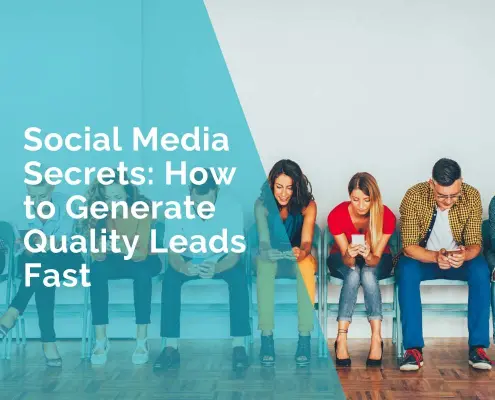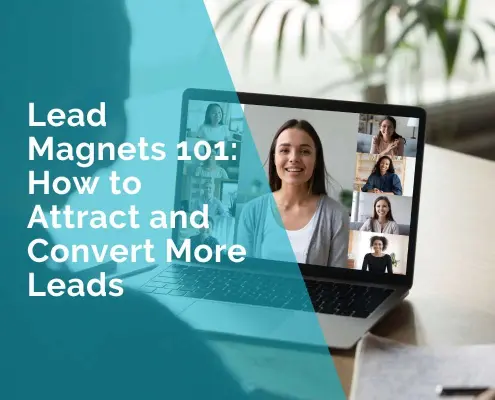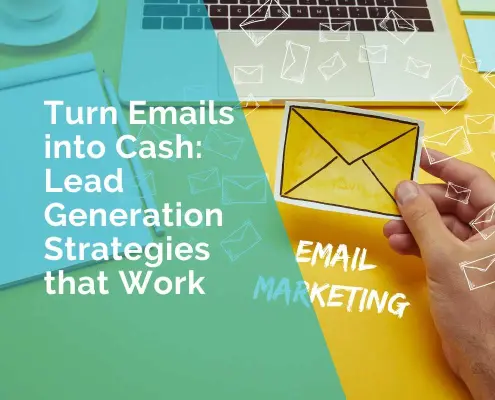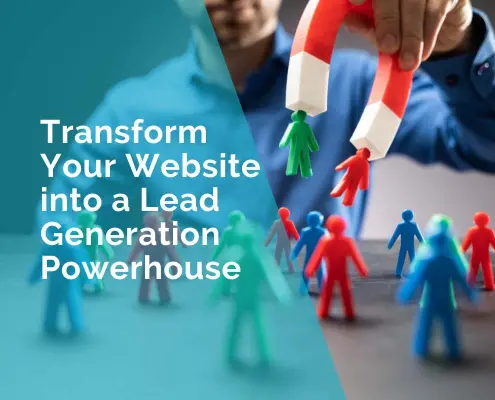What are the Trends in B2B Content Marketing?
“Content marketing is the only marketing left.” – Seth Godin
Aptly crowned as “king” by Bill Gates in 1996, content marketing continues to make waves in the digital space, and for a good reason. It’s authentic, valuable for the audience, and highly shareable—making it ideal for the internet generation.
Which brings us to the question: Is content marketing something B2B companies should invest in for 2022? Absolutely! Here’s why.
- Content marketing generates 3X more leads than outbound marketing.
- More than 51% of B2B buyers rely on content when making a purchase decision.
- Content can be amazingly versatile and reusable
While the effectiveness of content marketing is pretty much indisputable, organizations must stay abreast of the changing B2B landscape to remain relevant. With that in mind, here are the B2B content marketing trends to watch in 2022 and beyond.
Customer Retention Taking Center Stage
Companies are waking up to the power of customer retention, partly due to the impact of COVID-19 and the ever-increasing costs of acquiring new ones.
According to a Harvard Business Review report, acquiring a new customer is anywhere from 5 to 25 times more expensive than retaining an existing one. Moreover, it’s often easier to market to existing customers because the consumer is already familiar with your brand.
In 2022, B2B marketers who will capitalize their resources and efforts on customer retention will stay ahead of the pack. Why? By increasing the number of loyal customers, businesses can increase acquisition through customer advocacy.
To help you improve customer retention, here’s a list of content-focused strategies you could use to retain customers’ interest long after you’ve closed a deal.
- Update your website regularly with fresh content. Keeping your audience engaged increases their chances of coming back.
- Include promotional information, news about upcoming changes, and new product features in your email campaigns to spark their interest in your brand
- Examine how customers react to your products after purchase and ask them to create user-generated content (UGC) around your brand. You could offer an incentive to motivate them to participate
Increased Adoption of AI-Powered Personalization
AI personalization is the next big thing in content marketing.
And many companies, including Netflix, are seeing a quantum leap in revenue due to AI personalization. For instance, Netflix’s AI recommendation engine saves the company $1 billion every year, according to a Business Insider report.
B2B companies can level up their content marketing game by leveraging AI technology.
With tools like Contentyze and GPT-3, which use AI to take data and create captions and summaries, growing in popularity by the day, this trend will likely steal the spotlight in 2022.
AI algorithms are useful in curating content and predictive intelligence.
With this data, marketers can gain valuable insights into which content types to target to which customers. Plus, with AI, you can allow each customer to view a different version of your website based on their browsing history.
So, what can you do as a B2B content marketer?
- Leverage AI for Predictive Intelligence.
Predictive intelligence can make you more efficient. It can help you understand each customer and personalize the content that appeals to their needs and interests.
- Use AI-Powered Tools to Discover Content Ideas
Many AI-powered tools, like BuzzSumo, exist that can help you find trending topics and write content your audience will actually read. Alternatively, you could leverage the services of a reputable B2B lead generation company to help you with content creation.
The Growing Popularity of Podcasts
There is a skyrocketing demand for educational podcasts, and many businesses plan to jump on the bandwagon in 2022.
According to Oberlo, there are over 2 million active podcasts and more than 48 million podcast episodes. And Podcast forecasts show that podcast listeners will increase 20% annually to reach 160 million in 2023.
The increase in the popularity of podcasts means that more and more people are digesting information audibly.
The thing with podcasts is that they offer detailed information to users regarding various topics. Hence, they have immense potential to boost content marketing strategies.
And podcasts always drive results. According to eMarketer, about 54% of listeners will consider a brand after hearing about it on the podcast.
So, what steps should you take as a B2B marketer?
Include podcasts in your content marketing toolkit. Start by knowing your customers and their needs, then identify a problem that can be solved with a podcast.
Current events and controversial topics tend to convert more, so you should also consider infusing these topics into your podcasts.
Interactive Virtual Events
Leads are the lifeblood of any B2B business.
However, the traditional lead generation tactics are being phased out as marketers discover new, more efficient lead generation channels.
For instance, before the pandemic struck, in-person events were popular goldmines for leads. Due to the pandemic-imposed lockdowns, marketers woke up to the new reality that in-person events will not always be available to generate leads.
The results? There was an acceleration of virtual events across the board, from round tables to large-scale conferences and exhibitions. Today, virtual events have become a staple part of the B2B marketing landscape, and this trend will continue in 2022.
To make virtual events lively, marketers use various tactics, such as live quizzes, real-time polls, and gamification to create exciting two-way dialogue and rapport.
So, what can you do as a B2B marketer to remain relevant in a changing landscape?
Create interactive virtual events to maintain engagement with your audience. Make sure you’re equipped with the right technology and tools to facilitate virtual events and webinars.
The Expansion of Account-Based Marketing
Account-based marketing is slowly becoming the preferred B2B marketing strategy.
ABM or account-based marketing is a focused approach to B2B marketing in which marketers and sales teams work together to target best-fit accounts and turn them into loyal customers. ABM concentrates resources on a set of target accounts within a market.
Imagine a world where you could start your marketing campaign by selling directly to your best fit, highest-value customers? And no wasting time working on unqualified leads who aren’t fit for your business. With account-based marketing, all this is made possible.
Of late, ABM has been in the spotlight because it delivers results. According to the ITSMA study, 80% of marketers feel that ABM initiatives outperform other marketing efforts. And half of those say the difference is significant, so investing in ABM should be a priority.
The reason why ABM outperforms other marketing approaches is that it employs a personalized marketing strategy. Rather than writing generic blog posts hoping to catch some leads, marketers create personalized messaging for target accounts based on what they know about those customers.
So, how do you implement an account-based marketing strategy?
Start by identifying your high-value target accounts. Once you have a list of the target customers, follow the following steps:
- Conduct research on those accounts
- Develop content specific to the target accounts
- Launch your customized campaigns to the target accounts
- Track KPIs that will gouge your account penetration
Once you have the accounts performance data, build on success and learn from what didn’t work so that you don’t repeat the same mistakes.
The Rise of Communities
Building content communities helps foster word-of-mouth marketing and encourages people to see your brand as a person instead of a business. This trend has been growing in popularity in the B2B space and will only gain more traction in 2022.
Here’s why. In a recent University of Michigan study on the relationship between online communities and sales, researchers found that customers who participated in a company’s online community spent 19% more than those who didn’t.
Now, when you think of online communities, your mind might jump right to Quora and Facebook groups. However, the same study found that companies that built communities on their sites saw the most significant gains.
- B2B marketers who saw the biggest gains said communities resulted in:
- Reduced support costs
- Faster and more relevant customer feedback
- Development of brand ambassadors
- Increased engagement and social sharing
As a B2B marketer, aim to build an online community within your platform to drive more sales and increase user engagement. Make sure your content communities reflect your brand and its customers.
Wrapping Up
There you have it! The top content marketing trends for 2022 and beyond.
If you can follow these trends and implement the strategies mentioned above, you’ll be rolling into 2022 like a pro—with enough quality content to feed your hungry customers and your bank account too.














